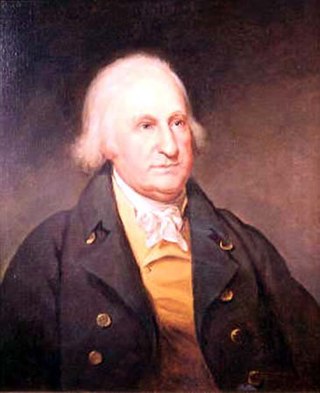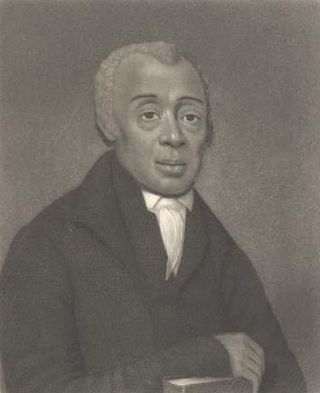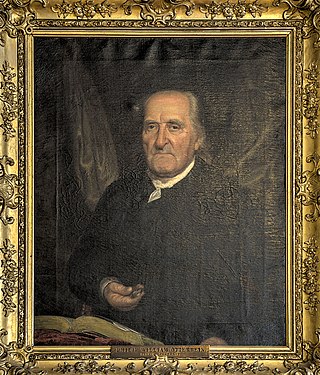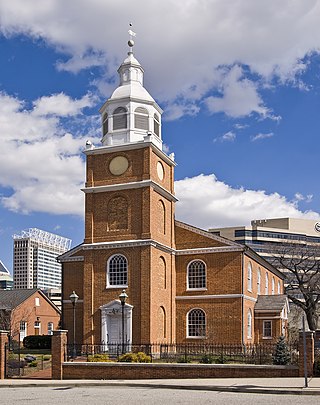External links
| Public institutions |
|
|---|---|
| Private institutions |
|
| Community colleges |
|
| Defunct institutions |
|
Cokesbury College was a college in Abingdon, Maryland and later Baltimore, Maryland that existed from 1787 until 1796. [1]
Cokesbury College was founded as the first Methodist college in the United States. Its name was a combination of the names of Thomas Coke and Francis Asbury, who were ordained the first two Methodist bishops in America at the meeting held on Christmas Day, 1784 at which it was also decided to found the college.
In December 1787 a Mr. Heath was inaugurated as the first president of the college. The college opened at that time with three instructors (including Heath) and 25 students. By September 1788 Jacob Hall was appointed the third president of the college. Due to the heavy turnover in both teachers and presidents, Francis Asbury's constant work on finding new people to fill these positions was key to the college continuing to operate. Among the professors at the college was Charles Tait, who later was a U.S. senator from Georgia and a federal judge.
In December 1788, there was an attempt to burn down the college. However the fire was put out by some of the students before it caused significant damage. In 1794, the college was granted a charter by the state of Maryland. It burned down on 4 December 1795. A large vacant building was then obtained in Baltimore which became the new home of the college. On 4 December 1796, the new college building burned down, and Cokesbury College ceased to exist.
The church that served as the chapel to the college did however survive. Cokesbury United Methodist Church (as it is now known by) was first called the Abingdon Methodist Chapel. It was built on land purchased in 1782 from John Paca, the brother of the Governor of Maryland. By 1784 it was opened for worship.
The original church of 1784, a partially brick, mostly wooden structure, burned in 1896. Immediately, upon its original foundation, the present little brick church was erected. Services were held in the autumn of 1896; concern for the community at no time was interrupted; and the church today serves the needs of the extended Abingdon community. In July 2009 Cokesbury Memorial United Methodist Church welcomed its first full-time Pastor, Frankie Allen Revell.

John Eager Howard was an American soldier and politician from Maryland. He was elected as governor of the state in 1788, and served three one-year terms. He also was elected to the Continental Congress, the Congress of the United States and the U.S. Senate. In the 1816 presidential election, Howard received 22 electoral votes for vice president on the Federalist Party ticket with Rufus King. The ticket lost in a landslide.

Francis Asbury was one of the first two bishops of the Methodist Episcopal Church in the United States. During his 45 years in the colonies and the newly independent United States, he devoted his life to ministry, traveling on horseback and by carriage thousands of miles to those living on the frontier.

The Methodist Episcopal Church (MEC) was the oldest and largest Methodist denomination in the United States from its founding in 1784 until 1939. It was also the first religious denomination in the US to organize itself on a national basis. In 1939, the MEC reunited with two breakaway Methodist denominations to form the Methodist Church. In 1968, the Methodist Church merged with the Evangelical United Brethren Church to form the United Methodist Church.

Richard Allen was a minister, educator, writer, and one of America's most active and influential Black leaders. In 1794, he founded the African Methodist Episcopal Church (AME), the first independent Black denomination in the United States. He opened his first AME church in 1794 in Philadelphia.

The Christmas Conference was an historic founding conference of the newly independent Methodists within the United States held just after the American Revolution at Lovely Lane Chapel in Baltimore, Maryland, in 1784.
Cokesbury is the retail division of the United Methodist Publishing House. Based in Nashville, Tennessee, Cokesbury serves as an agency of the United Methodist Church but serves also as an ecumenical resource provider to other denominations.

Francis Ignatius Neale, also known as Francis Xavier Neale, was an American Catholic priest and Jesuit who led several academic and religious institutions in Washington, D.C., and Maryland. He played a substantial role in the Jesuit order's resurgence in the United States.

Barratt's Chapel is a chapel located to the north of Frederica in Kent County, Delaware. It was built in 1780 on land donated by Philip Barratt, owner of Barratt Hall, and a prominent local landowner and political figure. Barratt, who had recently become a Methodist, wanted to build a center for the growing Methodist movement in Delaware.

Thomas Coke was the first Methodist bishop. Born in Brecon, Wales, he was ordained as a priest in 1772, but expelled from his Anglican pulpit of South Petherton for being a Methodist. Coke met John Wesley in 1776. He later co-founded Methodism in America and then established the Methodist missions overseas, which in the 19th century spread around the world.

Philip William Otterbein was an American clergyman. He was the founder of the United Brethren in Christ, which merged with the Evangelical Church in 1946 to form the Evangelical United Brethren Church. That church merged with the much larger Methodist Church in 1968, forming the United Methodist Church.

St. George's United Methodist Church, located at the corner of 4th and New Streets, in the Old City neighborhood of Philadelphia, is the oldest Methodist church in continuous use in the United States, beginning in 1769. The congregation was founded in 1767, meeting initially in a sail loft on Dock Street, and in 1769 it purchased the shell of a building which had been erected in 1763 by a German Reformed congregation. At this time, Methodists had not yet broken away from the Anglican Church and the Methodist Episcopal Church was not founded until 1784.
Abingdon Press is the book publishing arm of the United Methodist Publishing House which publishes sheet music, ministerial resources, Bible-study aids, and other items, often with a focus on Methodism and Methodists.

Towson United Methodist Church is a large United Methodist Church in the historic Hampton subdivision of Towson, a suburb in Baltimore County, Maryland. Its past, rooted in 19th-century America and subsequent growth in the two centuries since then, has closely paralleled the nation's political and sociological trends. It was a congregation split asunder in 1861 on the eve of the American Civil War in a border state of divided loyalties, which eventually reunited and built a church in the post–World War II era of the 1950s, a time of reconciliation and rapid growth by mainline Protestant denominations, especially in the more affluent suburbs.

Otterbein Church, now known as Old Otterbein United Methodist Church, is a historic United Brethren church located in Baltimore, Maryland, United States. The first "German Reformed" church was built to serve the German Reformed and some Evangelical Lutheran immigrants, and later entered the Brethren strain of German Reformed Protestantism in the later Church of the United Brethren in Christ.

Lovely Lane United Methodist Church, formerly known as First Methodist Episcopal Church and earlier founded as Lovely Lane Chapel, is a historic United Methodist church located at Baltimore, Maryland, United States.
The Allegheny Wesleyan Methodist Connection (AWMC), originally the Wesleyan Methodist Church (Allegheny Conference), and also known as the Wesleyan Methodist Church (WMC), is a Methodist denomination within the conservative holiness movement primarily based in the United States, with missions in Peru, Ghana, and Haiti.
Asbury College was a former Methodist college in Baltimore, Maryland. It was founded in 1816 about 20 years after Cookesbury College, the only other Methodist college that had existed in the United States up until that time, had burned down.
The following is a timeline of the history of the city of Baltimore, Maryland, USA.

Harry Hosier, better known during his life as "Black Harry", was an African American Methodist preacher during the Second Great Awakening in the early United States. Dr. Benjamin Rush said that, "making allowances for his illiteracy, he was the greatest orator in America". His style was widely influential but he was never formally ordained by the Methodist Episcopal Church or the Rev. Richard Allen's separate African Methodist Episcopal Church in Philadelphia.
The Bible Methodist Connection of Churches is a Methodist denomination within the conservative holiness movement.